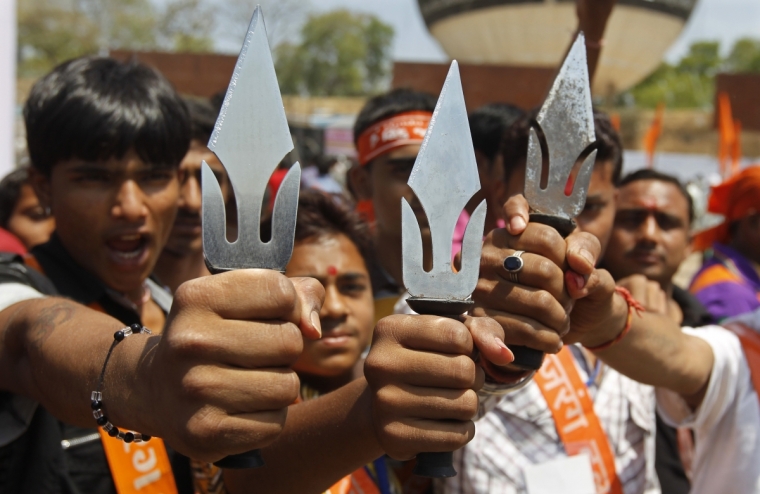Religious liberty group refused entry visas to India as Christians are threatened with death for not converting to Hinduisim

NEW DELHI (Christian Examiner) – Indian authorities have refused entry to the U.S. Commission on International Religious Freedom (USCIRF) after members of Congress sent a letter to the Indian government asking it to improve its human rights record for religious minorities.
On March 3, the USCIRF announced its members would not be taking a long-planned trip to the one of the world's most populous countries to "discuss and assess religious freedom" because India had not issued visas to the observers.
It is unfortunate that these Members of Congress while applauding India as a pluralistic society with a longstanding commitment to inclusion and tolerance have chosen to focus on just a few incidents. India is proud of its status as the world's largest democracy. The Indian Constitution guarantees fundamental rights to all its citizens, including minority communities.
"We are deeply disappointed by the Indian government's denial, in effect, of these visas. As a pluralistic, non-sectarian, and democratic state, and a close partner of the United States, India should have the confidence to allow our visit," Robert P. George, chairman of the USCIRF, said in a statement.
"USCIRF has been able to travel to many countries, including those that are among the worst offenders of religious freedom, including Pakistan, Saudi Arabia, Vietnam, China, and Burma. One would expect that the Indian government would allow for more transparency than have these nations, and would welcome the opportunity to convey its views directly to USCIRF."
USCIRF's delegation was scheduled to leave March 4 for its trip – one that had special importance given the number of reports coming out of the country of the Hindu majority's oppression of religious minorities and the rise of Hindu nationalism. George said in his statement that conditions for religious freedom began deteriorating rapidly in India in 2014.
On Feb. 26, a bipartisan group of 34 U.S. congressmen and senators sent Indian Prime Minister Narendra Modi a letter reiterating the U.S.-India partnership, but requesting the government condemn acts of religious persecution carried out against minorities there.
"Of particular concern is the treatment of India's Christian, Muslim and Sikh communities," the letter from Congress claimed. It mentioned the recent ban on "all non-Hindu religious propaganda, prayers and speeches" in more than 50 villages of one Indian state. Christians have been subjected to physical assaults, forced expulsion, have been pressured to convert to Hinduism, and have been denied access to food and water, the letter also said.
According to the letter, Modi – head of the Bharatiya Janata Party (BJP) – promised in 2014 that the Indian government would "ensure that there is complete freedom of faith ... and not allow any religious group, belonging to the majority or the minority, to incite hatred against others."
International Christian Concern praised the letter from the congressional group and called for the Indian government to condemn violence against religious minorities in the country. It also called for the government to prosecute those who persecuted Christians and other religious minorities.
"It is my prayer that by doing so, every Indian believer may no longer have to worship in fear," Nate Lance, ICC's Advocacy Manager, said in a news release.
The news of the congressional letter, however, was not received so well in New Delhi. On Feb. 29, the government described the letter as an "unfortunate" and an inflation of the facts on the ground. Vikas Swarup, a spokesman for the external affairs ministry, responded:
"It is unfortunate that these Members of Congress while applauding India as a pluralistic society with a longstanding commitment to inclusion and tolerance have chosen to focus on just a few incidents. India is proud of its status as the world's largest democracy. The Indian Constitution guarantees fundamental rights to all its citizens, including minority communities."
"Aberrations, if any, are dealt with by our internal processes which include our independent judiciary, autonomous National Human Rights Commission, vigilant media, and vibrant civil society," Swarup said.
The spokesman added that India was a multi-ethnic and multi-religious society. Within days of the letter's receipt, however, radical Hinduists with the Vishva Hindu Parishad (VHP) in one Indian district claimed the growing Christian population there was part of a U.S. government plot to drown out Hinduism in the region.